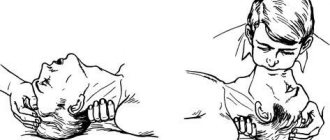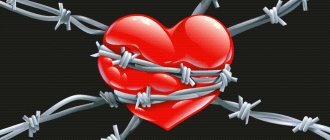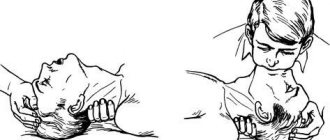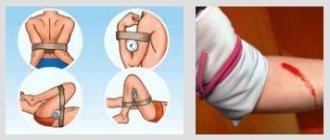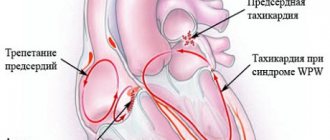Nosebleeds or epistaxis occur in 60% of the world's population. Most often, the condition develops in patients under the age of 10 or over 50 years of age. According to statistics, most cases of bleeding occur in men. The patient can cope with one type of blood loss on his own without harm to the body, while others require attention from a doctor. What do you need to know about nosebleeds, can they lead to death and how to provide first aid to the victim?
Why does my nose bleed?
Nosebleeds have many causes. Fortunately, most of them are not serious.
The most common cause of nosebleeds is dry air. Dry air can be caused by hot climates with low humidity or hot indoor air. Both environments cause the nasal membrane (the delicate tissue inside the nose) to dry out, crust or crack, and increase the likelihood of bleeding when rubbing or blowing the nose.
Other common causes of nosebleeds include:
- nose picking;
- colds (upper respiratory tract infections) and sinusitis, especially episodes that cause repeated sneezing, coughing, and nose-blowing;
- severe nose blowing;
- trauma to the nose and/or face;
- allergic and non-allergic rhinitis (inflammation of the nasal mucosa);
- blood thinning drugs (aspirin, non-steroidal anti-inflammatory drugs, warfarin, etc.);
- chemical irritants (chemicals in cleaning products, chemical fumes in the workplace, other strong odors);
- great height. As altitude increases, the air becomes thinner (lack of oxygen) and drier;
- deviated septum (irregular shape of the wall separating the nose on both sides);
- Frequent use of nasal sprays and medications for an itchy, runny or stuffy nose. These medications—antihistamines and decongestants—can dry out the nasal membranes;
Other, less common causes of nosebleeds include:
- alcohol consumption;
- bleeding disorders such as hemophilia, von Willebrand disease or leukemia;
- high blood pressure;
- atherosclerosis;
- facial and nasal surgery;
- nasal tumors;
- nasal polyps;
- immune thrombocytopenia;
- pregnancy.
The reason may tell you what to do if your nose bleeds.
Causes
Local
- Traumatic injuries to the nose. They occupy first place among all causes of bleeding. Minor injuries include scratches, abrasions, damage to the nasal membrane by the patient's fingers when removing crusts, as well as injuries during sports or other activities.
- Acute and chronic runny nose. Nosebleeds are a frequent companion to chronic sinusitis, rhinitis, and adenoids. May occur when the nasal septum is deviated.
- Foreign bodies in the nasal cavity and sinuses. When a foreign body is introduced, the nasal mucosa is damaged, causing light bleeding. Bleeding can also occur after a long stay of a foreign body in the nasal cavity, with the formation of granulations.
- Surgical interventions.
- Bleeding due to ulcerations in the nasal cavity. Sometimes observed in chrome production workers or in people working with strong acids.
- Infiltrates of the nasal mucosa of a tuberculous or syphilitic nature can cause slight ichorous discharge.
- Benign or malignant neoplasms. Of the benign tumors, the most common cause is a bleeding polyp of the nasal septum, as well as papillomas, lymphomas, and angiomas. Bleeding from angiofibromas of the nasopharynx (often in men aged 13-26 years) should be considered serious. The first sign of this disease is frequent night bleeding.
Are common
- Cardiovascular diseases (hypertension, atherosclerosis, heart defects).
- Infectious diseases (typhoid fever, influenza, scarlet fever, malaria, as well as whooping cough during a severe cough).
- Hormonal imbalance. Observed in teenage girls with menstrual irregularities. Often found in amenorrhea and hypomenstrual syndrome.
- Diseases associated with stagnation in the circulatory system (emphysema, liver and kidney diseases, as well as pregnancy).
- Hemorrhagic diathesis (hemophilia, vasculitis, Werlhof's disease, thrombasthenia).
- Diseases of the hematopoietic organs (leukemia, hemocytoblastosis).
- Bleeding as a result of changes in atmospheric pressure while in the mountains, deep under water.
- Uncontrolled use of anticoagulants.
- Heatstroke or sunstroke
How to stop nosebleeds?
To stop a nosebleed, follow these steps:
- Relax. There is no need to panic, because with excitement, the heart begins to beat faster and blood loss increases. Therefore, it is very important to calm down.
- Sit up straight and slightly tilt your body and head forward. This will prevent blood from flowing down your throat, which can cause nausea, vomiting and diarrhea.
- If you have a nosebleed, breathe through your mouth and as deeply as possible.
- Unfasten the collar and loosen the belt. If possible, open a window.
- What to do if your nose is bleeding? Use a tissue or damp cloth to catch the blood.
- Use your thumb and forefinger to squeeze the wings of your nose. Be sure to press the wings of the nose against the hard bone ridge that forms the bridge of the nose.
- Continue pinching your nose for at least 5 minutes before checking to see if the bleeding has stopped. If your nose is still bleeding, continue squeezing for another 10 minutes.
- Apply an ice pack to the bridge of your nose to further constrict the blood vessels (which will slow bleeding) and provide comfort.
All these tips are also suitable for those who are interested in how to stop a child’s nosebleed at home.
First aid for nosebleeds should be provided strictly following the previous advice, or by ambulance. Any mistake when providing first aid can have serious consequences. What are the “ mistakes when providing first aid or how not to save people?” read the article.
General information about epistaxis
There are two types of nosebleeds - anterior and posterior. In the first case, we are talking about the Kisselbach plexus, located on the anterior septum of the nose. The branched parts of the carotid, palatine, and facial arteries pass through it, which create the plexus. In 90% of cases, it is this area that causes bleeding. Anterior epistaxis can be stopped independently, without the help of specialists.
Bleeding from the posterior nasal cavity, which occurs in the remaining 10% of cases, can only be stopped by a doctor. They arise due to rupture of the walls of large vessels in the nasal cavity or the bones of the facial skull, rupture of an aneurysm or disintegration of a malignant tumor. Posterior epistaxis is also called “signaling”. It is characterized by suddenness, short duration and large blood loss.
Epistaxis is a separate category for bleeding from the lungs or upper gastrointestinal tract. Blood loss from the lungs is accompanied by the release of scarlet foamy blood, and from the abdominal cavity - dark and coagulated.
Content:
- General information about epistaxis
- First aid for nosebleeds
- Is it possible to prevent blood loss?
Causes of nasal bleeding
The causes of nasal blood loss are conventionally divided into two categories - local and systemic. Local ones include injury to the nose, the presence of foreign bodies in the cavity, inflammatory processes (from ARVI to chronic ENT diseases). Also among local factors are anatomical deformations of the nose, the presence of tumors, and the use of a nasal oxygen catheter. Bleeding can be caused by inhaling drugs, low relative humidity, which is especially important in winter during the heating season, and even the use of a nasal spray. Patients who have undergone surgery of the nasal septum are at risk. Blood loss can be either a short-term phenomenon or long-term, due to unskilled actions of the surgeon.
Among the systemic factors, the following possible causes of epistaxis are distinguished:
- allergic reactions;
- persistent increase in blood pressure (hypertension);
- diseases caused by hypothermia;
- consumption of alcohol-containing drinks (affects vasodilation);
- blood pathologies;
- vitamin C deficiency and;
- side effects from taking medications;
- heart failure;
- systemic connective tissue diseases;
- vascular pathologies.
Anatomy of the nose and types of bleeding.
The nasal cavity contains a huge number of blood vessels. It is here that the vessels coming from the internal and external carotid arteries intertwine (they, by the way, saturate the neck and all organs located on the head with oxygen). Intersecting, the vessels form the so-called Kisselbach-Little zone. This area is very close to the surface and is easily damaged. This is where 90% of all nosebleeds occur. Such bleeding is called anterior. They are, as a rule, not abundant, and stopping blood in the mucous membrane is quite easy and quick. In this case, blood flows out of the nostrils.
Posterior bleeding is also identified - from the posterior sections of the nasal cavity. Such bleeding is very profuse, and without competent emergency assistance it cannot be stopped. When blood comes from the posterior sections, it does not flow out, but flows down the back wall of the pharynx inward. This condition is much less common, but is fraught with large blood losses and a threat to life and health. In this case, emergency care for the child and adult should be provided exclusively by a doctor.
What to do if you have a nosebleed
The first step is to determine how serious the situation is. Pay attention to when the bleeding occurred and how intense it was.
It happens that the blood drips a little and stops on its own. It is also possible to stop minor bleeding on your own. If the bleeding is heavy and is accompanied by other signs (serious damage to the skin, fainting, darkening of the eyes, hysteria or increased blood pressure) or the bleeding is complicated by chronic diseases of the blood or cardiovascular system, you must urgently call an ambulance and follow the instructions of the telephone operator before arrival doctor
What not to do when bleeding?
When trying to stop bleeding, many people make the same mistakes. Read and remember what not to do.
You cannot tilt your head back - this will cause blood to flow down the nasopharynx, and it will be difficult to assess blood loss. It can also cause nausea, vomiting or suffocation (if inhaled). For the same reason, the patient should not be placed in a lying position.
There is no need to try to blow your nose too much, this will only make the situation worse.
If the cause of bleeding from the nasal cavity is a foreign object stuck in it, there is no need to try to pull it out yourself. Only an ENT doctor can do this efficiently and safely.
And, of course, there is no need to self-medicate, take hemostatic medications without prescriptions and try to diagnose yourself. The diagnosis in the clinic, made by the doctor after examination, is the only correct one! If the problem is not related to the ENT organs, the otolaryngologist will refer you for a consultation with related specialists who will already give effective prescriptions.
Prevention.
Preventive measures directly depend on the causes of frequent nosebleeds and may include:
- measures to strengthen blood vessels (taking vitamin C, the drug “Ascorutin”, hardening the body);
- maintaining blood pressure at a healthy level;
- maintaining an optimal level of humidity in the room;
- work in “dirty” industries in compliance with all protective measures;
- rejection of bad habits;
- timely treatment of liver, kidney diseases, infectious diseases, inflammation of the ENT organs;
- observe the work and rest schedule, do not overwork;
- eat foods rich in protein and reduce blood thinning foods (citrus fruits, fatty fish, ginger, onions, garlic, wine, etc.) in your diet.
If there is a problem, it is very important not to let things take their course, but to consult an ENT doctor in time. Therefore, do not delay your visit and come to the ENT Clinic of Doctor Zaitsev. Diagnosis of bleeding in adults and children is the specialty of our clinic.
To make an appointment for a consultation, call 8 (495) 642-45-25 and come. We will be happy to help you!
